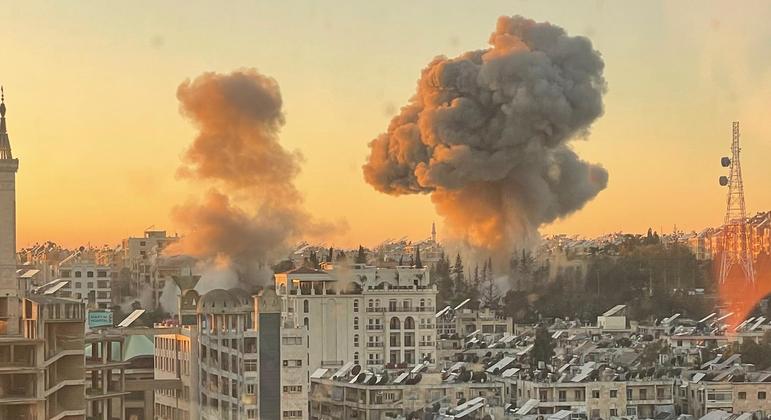Syria: Human rights investigators call for protection of evidence, including mass graves


A team from the Independent International Commission of Inquiry (CoI) on Syria visited former prisons and detention centers, including the infamous Sednaya prison and the 235th Military Intelligence Department.
This was the first time the group was able to access Syria, as the former regime had refused all previous requests to collect evidence.
the The team was disappointed to see that much evidence and documents had been damaged, taken away or destroyed – information that in some cases can help families track down missing loved ones.
“Great care must be taken to protect mass graves and protect all documents and evidence throughout Syria,” It speakwarns that well-intentioned but premature actions by individuals or organizations could hinder long-term forensic efforts.
Urgent recommendation
The committee is recommending the creation of a specialized unit to coordinate the protection and preservation of mass grave sites and related documents until forensic experts can evaluate them.
Independent human rights experts called on authorities to prevent any interference and return any deleted documents. Many domestic and international human rights agencies and organizations have offered assistance to collect evidence and support the families of the missing.
“This important moment in Syrian history and At a time of great hope for the Syrian people, the Committee reiterates its full solidarity with all the Syrian people and stands ready to assist in any capacity possible,” it stated.
Established by the United Nations Human Rights Council in 2011, the Independent International Commission of Inquiry was tasked with investigating all alleged violations of international human rights law since March 2011 in Syria.
Human rights experts call for comprehensive reconstruction
Separately, a group of more than 30 independent human rights experts – including the Special Rapporteur – emphasizes the need to obtain unified international support to ensure Syria’s transition is based on democratic principles and human rights.
They emphasized that justice, reconciliation and respect for Syria’s sovereignty are paramount to the country’s recovery from the fall of the Assad regime.
Experts stressed the importance of addressing the rights of marginalized groups, including women, children, minorities and displaced persons, while ensuring the political process remains Syrian-led religion and the Syrians are the masters.
‘Trusted’ system
“Justice must be pursued for every crime committed, regardless of the perpetrator, through a credible justice system that focuses on accountability, compensation, and reconciliation, not revenge”, experts stated.
They added: “It is important that such processes fully comply with international human rights standards… Involvement of civil society and human rights defenders in a just transition is extremely important for this process to be reliable.”
Cooperate, not aggressively
Experts call on the international community to support Syria’s reconstruction while ensuring the process is free from foreign interference or aggression, warning that the country has suffered from major foreign interference. foreign countries, turning this country into the scene of a long and widespread proxy war.
Continuous military interventions, such as recent illegal and unprovoked attacks by Israel – its occupation of additional Syrian territory in the Golan Heights as well as airstrikes and incursions into northeastern and central Syria – are serious obstacles to effective recovery.
“All foreign military occupation forces must leave Syria and all incursions and attacks on its territory must cease immediately.”, experts stated.
Independent expert
The experts include a number of Special Rapporteurs and Working Groups on important human rights issues, appointed and authorized by the Geneva-based Human Rights Council.
They are not employees of the United Nations, do not receive a salary and serve in an individual capacity, independent of the United Nations Secretariat.


